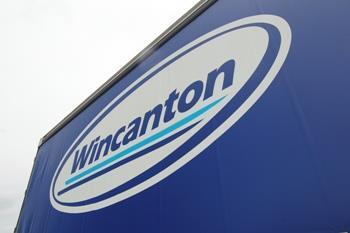
Wincanton will be back in the black this financial year as the group’s extensive restructuring and disposals programme bears fruit.
Wincanton chief executive Eric Born tells MT: “When [we] started this programme we said it would take two years to arrest the decline. We are bang on track. It’s absolutely what I’m expecting.”
A year of restructuring and disposals saw it sell its European operations to focus on the UK and Ireland, dispose of its 20% shareholding in Culina Logistics at a cost of £4.8m, and take a £23.4m hit on closing its foodservice business in the 12 months ended 31 March.
Wincanton also took an onerous lease provision of £34.1m, as it found itself with extra warehouse capacity as customers exited contracts and retail volumes dropped.
While it won £70m of new business (on an annual basis), this wasn’t enough to offset the impact of lower volumes, contract losses and customers taking their transport and warehousing operations back in-house as a cost-cutting measure. This saw revenue slip 9% to £1.2bn (2011: £1.3bn).
With revenue down and overall exceptional items totalling £68m, the group made an underlying operating profit but recorded a pre-tax loss of £47.4m compared to a profit of £3.6m a year ago.
Born points out that its underlying operating profit margin stands at a solid 3.6%, and predicts Wincanton will win more business than it lost this year, although group revenue will not necessarily be higher due to the business disposals made.
He points to the company’s collaborative transport arrangement with retailer Sainsbury’s as a business opportunity it hopes to replicate with other retailers.
“I believe we have service offerings that are extremely strong and that we can deploy into the market,” says Born. “So in that respect, I am comfortable and optimistic.”
Wincanton recently revealed the details of its contract with fashion retailer Supergroup. It has just won a five-year deal with Asda to operate the grocer's new north-west DC in Rochdale.













